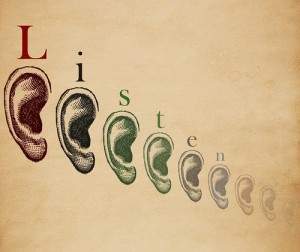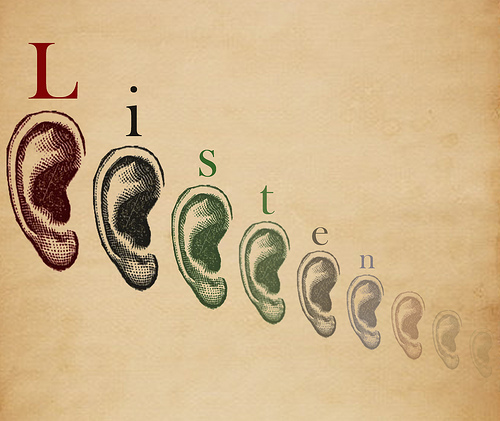“…I can’t deny the fact that you like me, right now, you like me!” – Sally Field
Social media just makes us all feel so darn good, doesn’t it? I mean, look at me, my name and picture is right there in the upper left. Back in my advertising days, I had ads run in The Wall Street Journal and USA Today, but no one would ever know, since my name wasn’t attached.
And I’ve got followers on Twitter. And LinkedIn. And…
Sorry, did I just become an egoblogger?
On second thought…don’t look at me
 This is why most social media marketing is so, well, outright bad. To go back to that study by Pear Analytics, 40% of tweets are “pointless babble.”
This is why most social media marketing is so, well, outright bad. To go back to that study by Pear Analytics, 40% of tweets are “pointless babble.”
In a discussion last week with Pamela Markey, our Director of Marketing, she came up with the perfect phrase to describe this phenomenon – antisocial media.
Social is defined as “relating to human society and its members.” But, how many social media marketing practitioners are really relating to anything beyond what they are trying to promote?
Automatic for the people
To make matters worse, there are social media “experts” who sell products that offer to automate social media promotion and marketing.
One product I came across allows you to auto follow targeted Twitter profiles, rapidly increase niche Twitter followers, have unlimited Twitter profiles, automate direct messages, and, consequently, spend time on other tasks while the program works for you.
Feature rich but concept poor. This begs the question, what’s the point? (And the second question, can any software automate blog writing so I can spend time on other tasks? Where is HemingwayBlogger v3.0)?
So, what is the point then?
The point of social media is to give the people what they want, which is not necessarily what you want to tell them. That’s why social media marketing success does not lie in you, it lies in them.
Now I am not a social media marketing “expert” (which seems to be defined by having a five-figure following on Twitter), but there are certain discoveries we’ve made at MarketingExperiments that should logically work with these new platforms. Namely, the most important factor to conversion is motivation.
Let me take two real-world examples to show you what I mean.
Not only is Bill Gates richer than you, after only two months on Twitter, he already has more followers – 601,109. Then there’s That Guy (name changed to protect his anonymity). We were first tipped off to That Guy by a comment on this blog. That Guy has 84,466 followers.
Both pretty impressive. Now let’s look at another column on Twitter – “following.” Bill Gates is following 44 people. That Guy – 91,349. So how do you think That Guy got so many followers? Not only did he auto follow his way to “expertise,” he is trying to use that number of followers as a proof point for why you should buy his social media product.
Don’t be That Guy
In stark contrast, how did Bill Gates get so many followers? People likely want to hear what he has to say.
Of course, if you’re not a world-famous tech billionaire and philanthropist, people are likely less motivated to listen to you. But the same principle applies. Put yourself in your audience’s shoes. What can you tell them through social media that they’ll actually care about? How do they connect with your brand?
For example, I rarely tweet anything that’s not marketing related, but for a free Pearl Jam song I gladly added my 140 characters to the Twitterverse. Pamela is happy when she receives a 30% off coupon from J. Crew. And at MarketingExperiments we try to create valuable, free content that helps you do your job better.
My point is, there is no one right answer for how to use social media to tap into your audience’s motivations, but there is an answer for your brand.
And unless you tap into that motivation with your social media efforts, you’re just wasting your most valuable resource – time – while stroking your own ego at the huge “following” you have.
Am I right? Am I wrong? We’re listening. Use the Topsy button at the top of this post to tweet your opinion or leave a comment on this blog.




How many people are following Bill Gates because they are social media marketers looking for some brilliant idea in 140 characters to retweet to their following — making themselves look good?
If any marketer has a huge following but 1% vote for them in a twitter nomination — do they really have a huge following?
Great article. I certainly believe on the content and social media will really help the businesses to get recognized.
Oh no, you’re definitely right. Allow me to give one of my favorite examples of social media done right.
Early last year, I happened to connect with a Ruby on Rails developer. He wanted help with his website content, so he posted on Twitter. I offered to help. We emailed back & forth, he gave me the go-ahead, and I wrote him his content. Things went swimmingly using just email and Twitter.
THAT’S what social media is for, when it comes to business. Not being pushy with auto-tweets and bolstering your ego via following numbers. It’s for paying attention, doing a little research, and counting success by the real connections you make.
“Antisocial media” (I love the term, and will probably use it in the future) stands a better chance of ruining social media for business use than it does helping it.
Agree! I have been measuring stats on marketing for years. Yet, my largest successes were because I viewed the situation from the customers’ viewpoint instead of my own.
A few years ago, as a new circulation manager for a nationwide magazine, I wanted to know how many readers we had so I surveyed perceptions. The results were so overwhelming in certain states, that it was clear we could reduce circulation by 40% nearly every person wrote on the survey. “I don’t want this magazine.” The company was paying to provide free magazines to people who did not buy (consent).
My concern is that our social media is not asking what people think. As a result, do we have the potential to repeat this situation with Twitter? Yes. The potential is huge. We must ask ourselves what it costs – even if tweets do not have a cash outlay for production.
I think you hit the nail on the head. I find myself more annoyed than in awe with “marketers” who clearly used techniques such as auto-following on Twitter. As a consumer, I want to make a connection, not be published to. So as a marketer, don’t pitch me something that helps me publish to users but rather something that helps me connect with users.
Every day my in box is over run with offers about how to master the art of social media. Everyone is an expert-I often explore what they have to offer, and many times this is to get your email address they offer you some token information as free to get you involved in finding out about there product.
What I find missing is “What’s In It For Me” I know whats in it for them – reaching into my back pocket and getting XXX dollars. So, often I find the information to be useless, and re-cycle stuff that I can get off the Internet for free.
I wouldn’t say you’re becoming an ego-blogger…social media advertising is a tough nut to crack.
Best thing I’ve read this year. Funny how we get carried away with stuff we intuitively know is not important. Love the blog writing software gag. I intend to steal that and use in some social media meeting at work:)